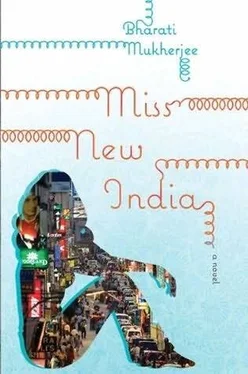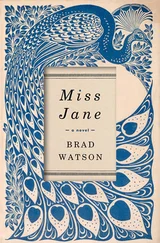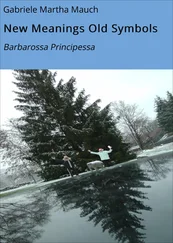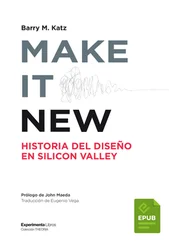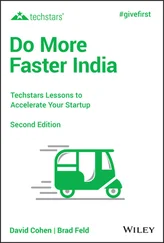"Parvati sacked two architects before she was satisfied! The Bhattacharjee sisters know what they want, and they don't quit till they get it. What's that American phrase CCI teaches students? Steel magnolia? Well, Parvati and Rabi's mother are titanium lotuses!"
Parvati came back, carrying a bowl of tiny balls of minced fenugreek leaves and shredded coconut, which she had just fried. "Consider yourself lucky, Auro. Without your titanium lotus you would have been stuck with a white elephant. Did you tell Anjali how the NRI repatriates are becoming younger and younger, and Dollar Colony is looking dowdier and dowdier compared to the new communities?"
"Infrastructure," Auro announced, before popping two of the fenugreek balls into his mouth. "That's the buzzword. Infrastructure."
Grease glistened on his mustache. Parvati blotted the grease with a linen cocktail napkin. "Oh dear, I'm not helping you with your cholesterol problem, am I?"
"We have the best doctors in the world in Bangalore, so why worry? American hospitals are outsourcing diagnoses to us, and I have instant access to the Mayo Clinic. Enjoy today, solve tomorrow. Anyway, these repats are cross-breeding brand-new East-West fruits in their gated Edens."
"We oldies had to send Dinesh and Bhupesh to Britishy boarding schools in the hills," Parvati remembered. "Now the new colonies are setting up their own private schools. Learn yoga, recite the Vedas in Sanskrit, and prepare to ace the SATs. They have it all."
"As I said, infrastructure. Medical, economic, educational, communication. I could go on."
Honestly, Anjali didn't understand a word, even as she appreciated being included in the discussion.
DOLLAR COLONY MAY have slipped from being the best address to merely something distinguished, but Anjali was still dazzled by the slightest luxuries, like the Instamatic hot water faucet in the Banerjis' kitchen. Even more than the comforts of the Banerji house-and was this a sign that she was coming out of her depression?-what she coveted as she listened to Auro was the Banerji family. Why couldn't she have been allotted Auro and Parvati as parents, Rabi as cousin? How different a person she might have been if…
Rabi came back from his photo shoot in Bheemswari on the sacred Kaveri River, excited about mahseer fishing. He was full of stories and digital pictures of skimming the water in round buffalo-hide coracles, and, on his second-to-last night in the fishing camp, reeling in ("Okay, the local guide helped," he admitted) a ten-pounder. He scrolled down the shots from his little silver digital camera. Every note a symphony, Anjali thought. Is the most beautiful woman in Gauripur still inside? What about my pictures from Shaky's studio?
Anjali had never bothered to learn the names of trees and flowers on her street in Gauripur and had never met anyone who fished for pleasure. Her father would never waste good money on something as dangerous as sport fishing. He couldn't swim, and she could not imagine him paddling a boat or standing in running water. She wasn't sure that before Rabi's Bheemswari trip, she'd ever thought of the mythic mahseer as actually existing. That mahseer was a fighting carp, an immense and magnificent river-dweller with shimmery gold sides, red-gold fins, and thick lips tipped with barbels. What was it Peter called it? Carpe diem. God's carp? To land a golden mahseer, the legendary forty-pounders in the Himalayan waters, was to know the challenge of a lifetime.
The only carp she knew, and knew too well, were of modest size and wrapped in newspaper. Her father would drag her to the fish stalls most Sunday mornings, and while she blocked out the fish stench with her handkerchief, he would diligently peer into the gills of a particular specimen to check for freshness before haggling over the price with a fishmonger. Curried carp seven nights a week, except in hilsa season, and bhekti fry for very special occasions. The Boses, like every other Bengali on the block, were staunch fish-and-rice eaters. They bought their fish in a smelly market; they didn't catch them in the bosom of nature. She'd never connected carp with romance. Rabi's enthusiasm so infected her that she even asked what he'd used for bait. "Flies!" he said, which ruined the effect. How lucky the people like Rabi, who could throw themselves so totally into their work! Even if she had passed the CCI exam and found a job, it would have been just that: a job, not a calling.
"Hey, you must be feeling better! A lot better, Anjali!" He didn't make fun of her questions or the sour face she'd made at the talk of flies and worms. "Freshwater crabs and cooked millet dumplings also worked."
THEY WERE IN Parvati's prized garden in the early morning, Rabi setting up a tripod and focusing his Nikon on the showy, sticky heads of fruits and flowers; she sipping fresh watermelon juice with a straw. He smiled up from his equipment. As the sun rose higher, he had to take new readings on his light meter. This was not an assignment for pay. He, a B &W snob, was paying homage in color to Parvati-Auntie, the fanatic gardener. The post-monsoon flowers, the swarms of butterflies and occasional parrots, budgies and sunbirds: everything about her garden was overstated and overlush. Everyone in Dollar Colony was horticulturally competitive. Citibank Srinivasan had imported Siberian fruit trees. Hewlett-Packard Gupta had transplanted a mini Indonesian jungle. Parvati was an Indian chauvinist: wide avenues shaded by rain trees and flame of the forest, blue and purple jacaranda, scarlet gul mo-har, champak, jasmine, roses, gladioli, anthurium, gerbera… it's never too late to learn, especially if you admire your teacher. Monet. Light and angles.
"At least I got to Bangalore," Anjali said. I am trying to get over the heavy stuff. Not there yet, but I've made a start, thanks to your aunt.
"I always knew you would. If that's what you wanted." Click! Click! Rabi went back to the hedges to reset his camera.
She'd never felt so comfortable with a boy. Why can't we get what we most want in the world? When he came back, she asked, "When we met in Gauripur, did you think I didn't really want Bangalore?"
"Did I sound skeptical? I didn't mean to. You were looking for a way out. Peter convinced you Bangalore was that." Click! Click! Click! A chameleon scuttled over the velvety grass.
"I've gotten over wanting life enhancement. A job that pays for basic needs, that's my goal now."
"Don't sell yourself short." He aimed his lens at a stray kitten circling the birdfeeder. "I happen to be one of a large chorus who think Anjali Bose is a child of destiny." He dodged the dripping straw she tossed at him. "Seriously."
"Don't you dare stress me out with the destiny stuff!"
"Sorry. No, I'm not really sorry. Anyway, changing subjects, have you found anybody yet? You can tell me."
"I wouldn't want to make you jealous."
"I'm jealous of anyone in love. Even more jealous of anyone loved back." He seemed about to confide in her.
"If you think there's something going on between…"
But Rabi wasn't listening. "Actually I met a guy in Mumbai-Christ, 'A Guy from Mumbai' sounds like a Noel Coward song." He did a fancy two-step. Then glided into a wicker chaise longue near her canvas chair.
"Now I am jealous, Rabi."
"Anyway, I met this Rutgers senior. He was visiting his grandparents. The last thing he expected was finding another Indo-American who… what was cool was that we met in the gallery exhibiting my photos."
Gauripur images flooded her, not the dreary small town of her memories, but the Gauripur she had glimpsed through Rabi's restless lens.
"When you create things, like my mother with her books or a lowly photographer like me, or even origami like Auro-Uncle, you still dream of meeting someone who's fallen in love with you for something you've written or painted, something you've created. Well, he fell in love with my photos of Ali and Peter and you, Mona Lisa. That's how I knew we could be… serious. Terrible word, serious, why can't we say what we mean? Serious is the last thing in the world… never mind. Then he had to go back to Rutgers. Dum-diddle-dee, dum-diddle-day, they always go back to school, don't they? That's more Cole Porter than Coward, right?"
Читать дальше
